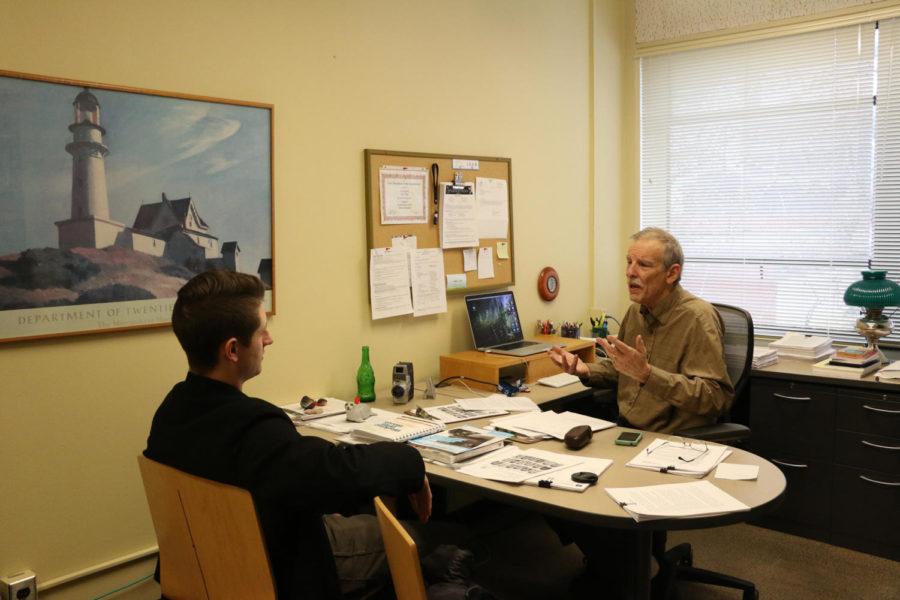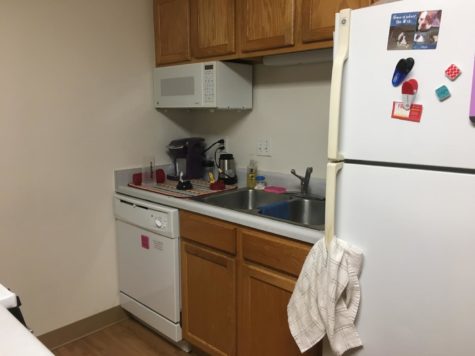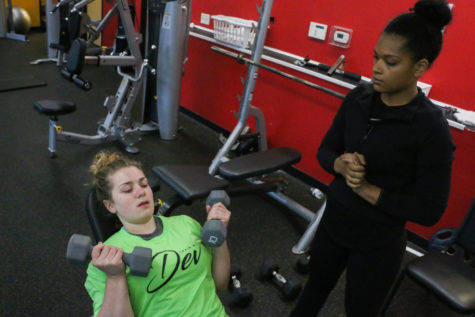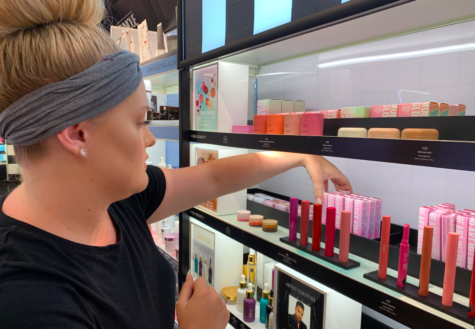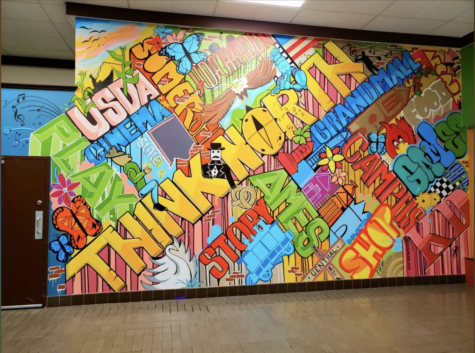Professors can help guide students to success
Emily Blobaum/Iowa State Daily
Jeff Ames, a lecturer at the Greenlee School of Journalism and Communication speaks with Taylor Mankle, senior in journalism.
January 23, 2017
Trying to navigate college can be difficult, but having a relationship with a professor can help guide students to the professional path they wish to follow.
Molly Olson, a sophomore in public relations, said that her English professor helped her choose her major. Because of the small class size, it was easier to speak one-on-one with her professor.
Olson said that she really got to know her professor outside of the classroom.
“During this time, she would also ask me questions about myself and especially my major,” Olson said. “Since I was still undecided, she gave me some input and helped me form my decision of eventually majoring in PR.”
Student-teacher relationships can start in a number of ways, which include simply going up to the professor and asking questions at the end class or being an active participant in class.
Professors really get to talk with students outside of class time because of the extended amount of time a professor can spend with a student.
Terry Alexander, professor of economics, said, “Professors have to make decisions about material that is to be covered in a formal classroom setting. Then time constraints prevent the inclusion of things the professor thinks are important.”
He also said that having outside discussions with the professor to a certain extent removes that time constraint, allowing a more complete and in depth discussion of material and issues.
Alexander said that some relationships between professors and students do not go as well as the student had hoped because the type of mentoring a professor can offer is limited. There is only so much a professor can advise on if their field does not match the professional aspirations of the student.
In addition, sometimes personalities clash, and if a student is not willing to be taught or lead by a professor, the student will gain very little out of the relationship and possibly even be set back.
Erin Wilgenbusch, professor of public relations, said that when talking to a professor for the first time, it is best to be direct.
If there is a certain type of help that a student wants, they should just be outright about their goals for the relationship. If a professor does not know what the student wants, they are going to be less effective as a resource, Wilgenbusch said.
Wilgenbusch also said that students should remember before developing too close of a connection, that the relationship centers around the student’s career.
She said sometimes students assume the relationship will be based on friendship, rather than a mentor-mentee relationship, but for the most part, the connections remain professional.
While Wilgenbusch said that a friendship is not out of the cards, she did stress that it would most likely start to take on the characteristics of a friendship after graduation.

